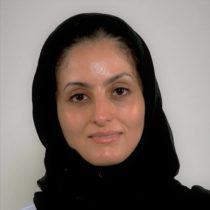Letter to the editor regarding an article by Fevga and colleagues1 delineating the role of bi-allelic variants in the PTPA gene (OMIM *600756) and their association with autosomal recessive early-onset parkinsonism and intellectual disability (ID).
PTPA variants and the risk for Parkinson’s disease in diverse ancestry populations
July 19, 2023
Training and Networking Working Group
PTPA variants and the risk for Parkinson's disease in diverse ancestry populations

Training and Networking Working Group
The Training and Networking working group promotes training and networking throughout the GP2 project.
Learn more about Training and Networking Working Group Meet the authors

PhD student/Neurological resident, Honorary Research Assistant
Miriam Ostrožovičová, MD
University of Pavol Jozef Šafárik, University College London | Kosice, Slovakia

Unknown, Researcher
Nada Abdullah Altassan, PhD
Unknown, King Faisal Specialist Hospital and Research Center | Saudi Arabia
More outputs and publications
Team Science Approaches to Unravel Monogenic Parkinson's Disease on a Global Scale
In this article, we describe combining both efforts in a merger project resulting in a global monogenic PD cohort with the buildup of a sustainable infrastructure to identify the multi-ancestry spectrum of monogenic PD and enable studies of factors modifying penetrance and expressivity of monogenic PD.
Clinical and functional evidence for the pathogenicity of the LRRK2 p.Arg1067Gln variant
LRRK2-related Parkinson’s disease (LRRK2-PD) is the most frequent form of monogenic PD worldwide, with important therapeutic opportunities, exemplified by the advancement in LRRK2 kinase inhibition studies/trials. However, many LRRK2 variants, especially those found in underrepresented populations, remain classified as variants of uncertain significance (VUS). Leveraging on Malaysian, Singaporean, and mainland Chinese PD datasets (n=4,901), we describe 12 Chinese-ancestry patients harbouring the LRRK2 p.Arg1067Gln variant, more than doubling the number of previously reported cases (total n=23, 87% East Asian, mean age of onset:53.9years). We determine that this variant is enriched in East Asian PD patients compared to population controls (OR=8.0, 95%CI:3.0-20.9), and provide supportive data for its co-segregation with PD, albeit with incomplete penetrance. Utilizing established experimental workflows, this variant showed increased LRRK2 kinase activity, by ~2-fold compared to wildtype and higher than the European p.Gly2019Ser variant. Taken together, p.Arg1067Gln should be reclassified from a VUS to pathogenic for causing LRRK2-PD.
Elucidating causative gene variants in hereditary Parkinson’s disease in the Global Parkinson’s Genetics Program (GP2)
The Monogenic Network of the Global Parkinson’s Genetics Program (GP2) aims to create an efficient infrastructure to accelerate the identification of novel genetic causes of Parkinson’s disease (PD) and to improve our understanding of already identified genetic causes, such as reduced penetrance and variable clinical expressivity of known disease-causing variants. We aim to perform short- and long-read whole-genome sequencing for up to 10,000 patients with parkinsonism. Important features of this project are global involvement and focusing on historically underrepresented populations.




